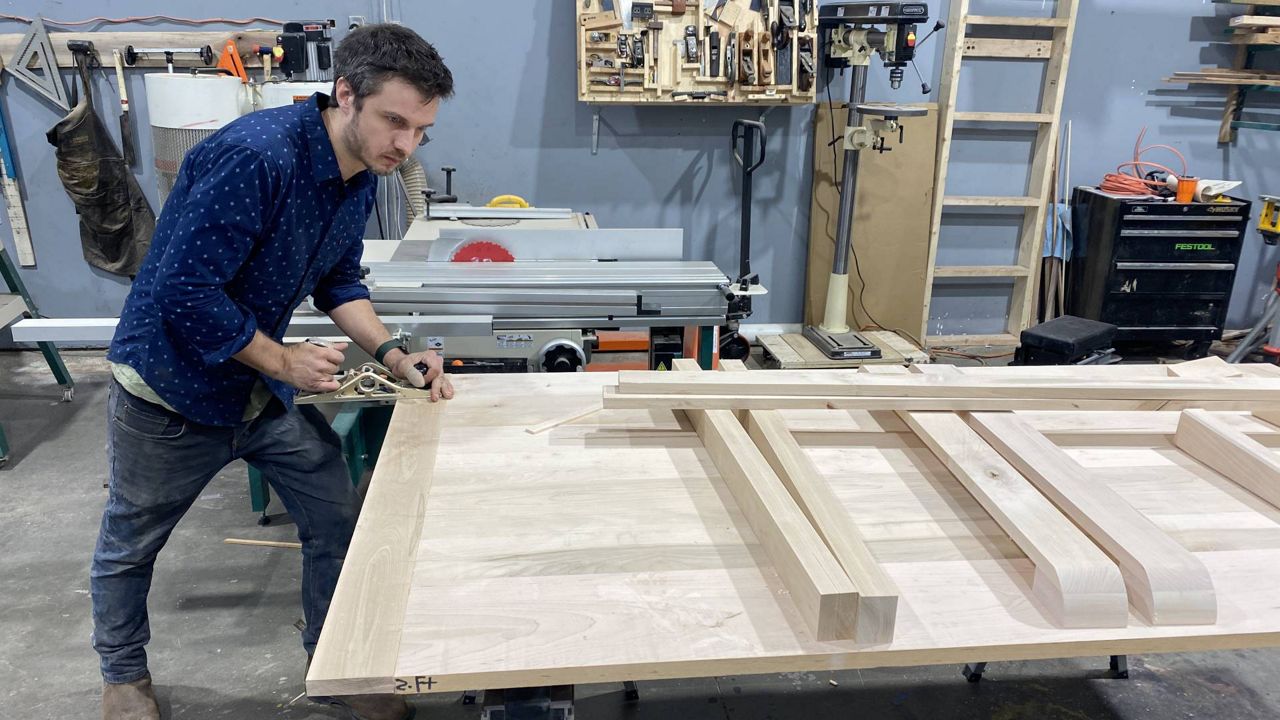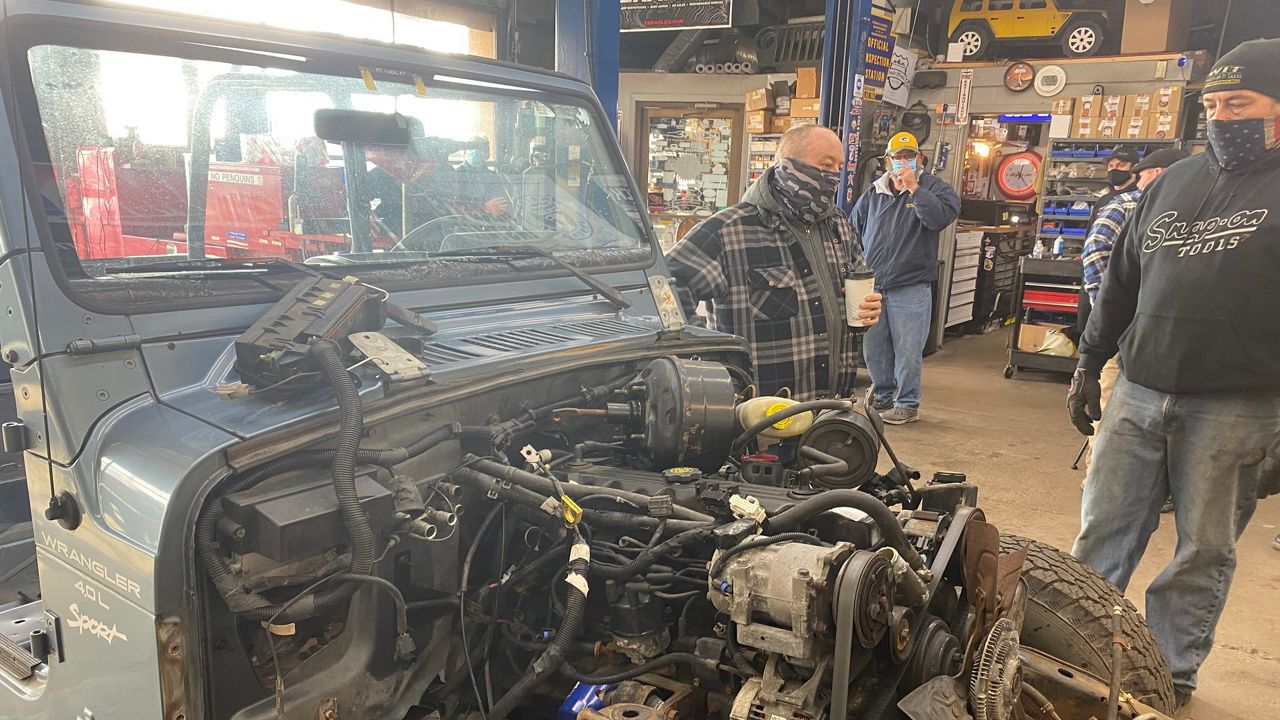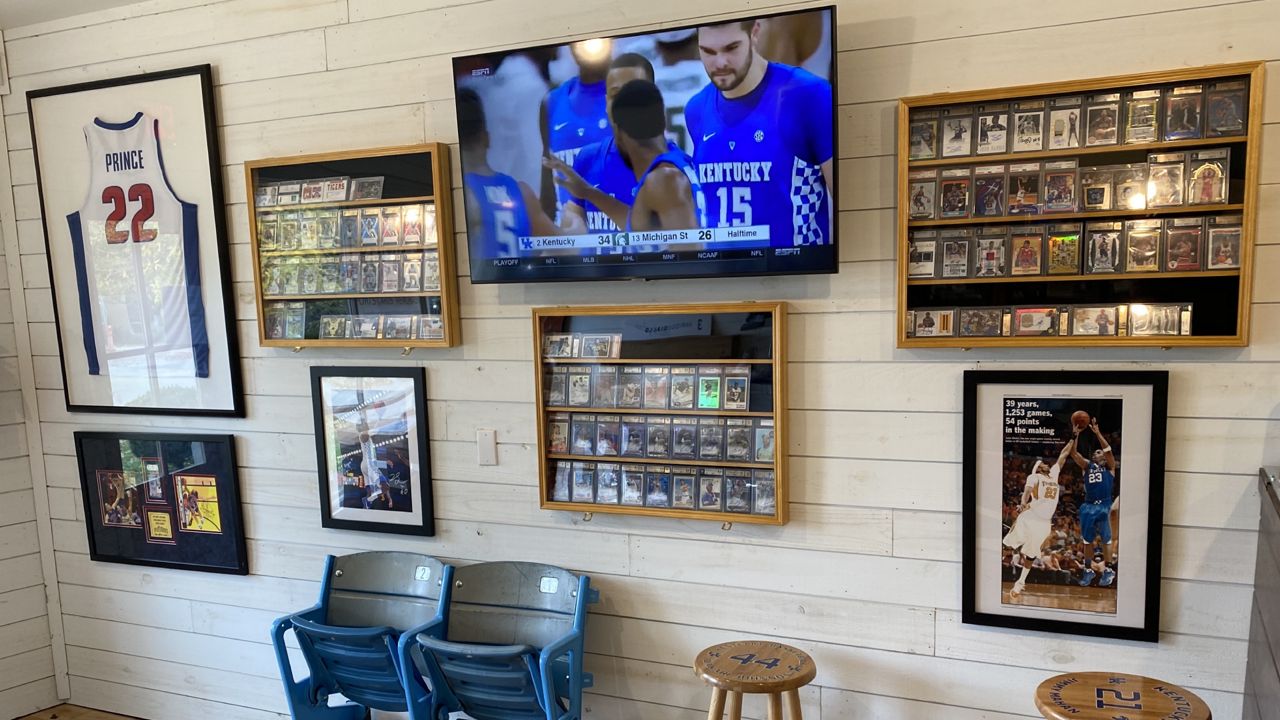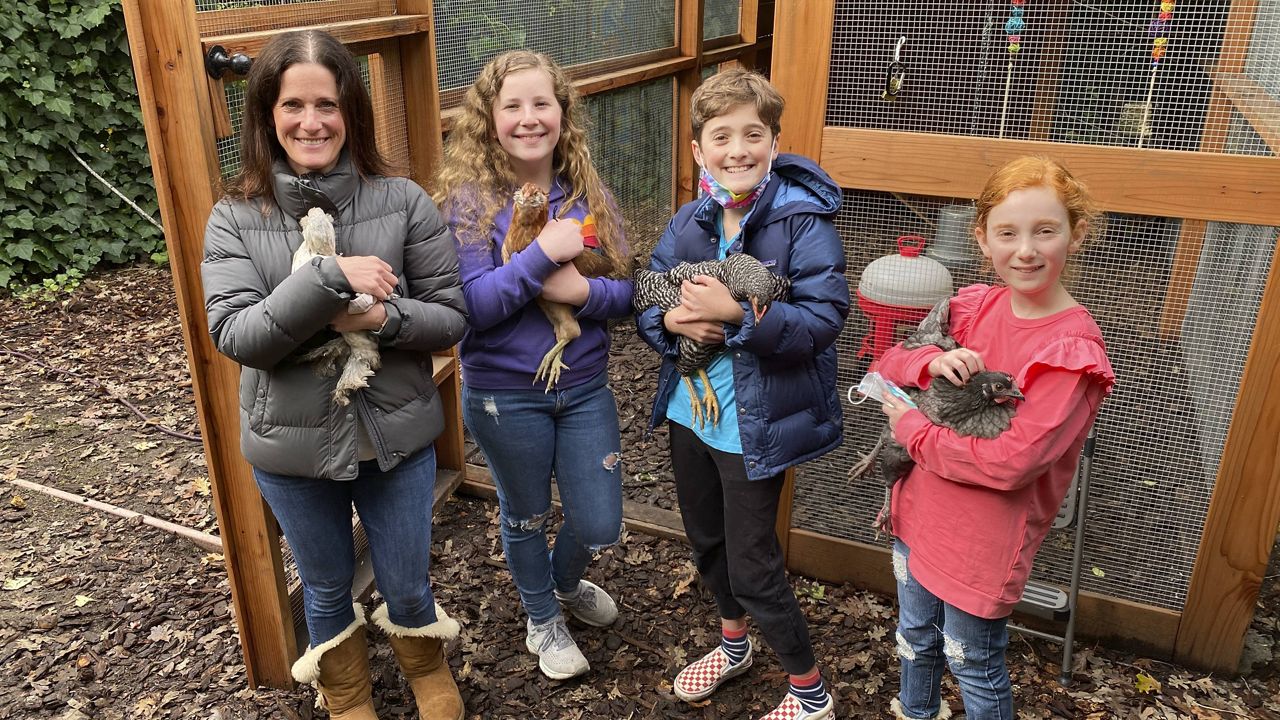LEXINGTON, Ky. – Growing up on a farm in Madison County, William Ney never thought he would become a professional woodworker.
What You Need To Know
- William Ney never picked up a hammer until age 30
- Former librarian has degrees in philosophy and political science from Transylvania University
- Can claim Elon Musk and a Hollywood studio as customers
- Each unique table takes 50-60 hours to complete
“I never even picked up a hammer until I was 30,” he said. “No one ever said doing this was a good idea.”
Ney, 39, took an unconventional path to his career as a woodworker. Armed with philosophy and political science degrees from Transylvania University, the former librarian several years ago decided he wanted to build a doghouse for his new puppy.
“It was terrible and it frustrated the heck out of me,” he said. “I just kept going at it until I got it done. Then, I realized I really liked working with my hands. So then I built a table and I sold it at Scout Antiques off Winchester Road – it sold in 24 hours for a pretty good price. I just kept it up as a hobby while I was a librarian, and then I started making more money doing this.”
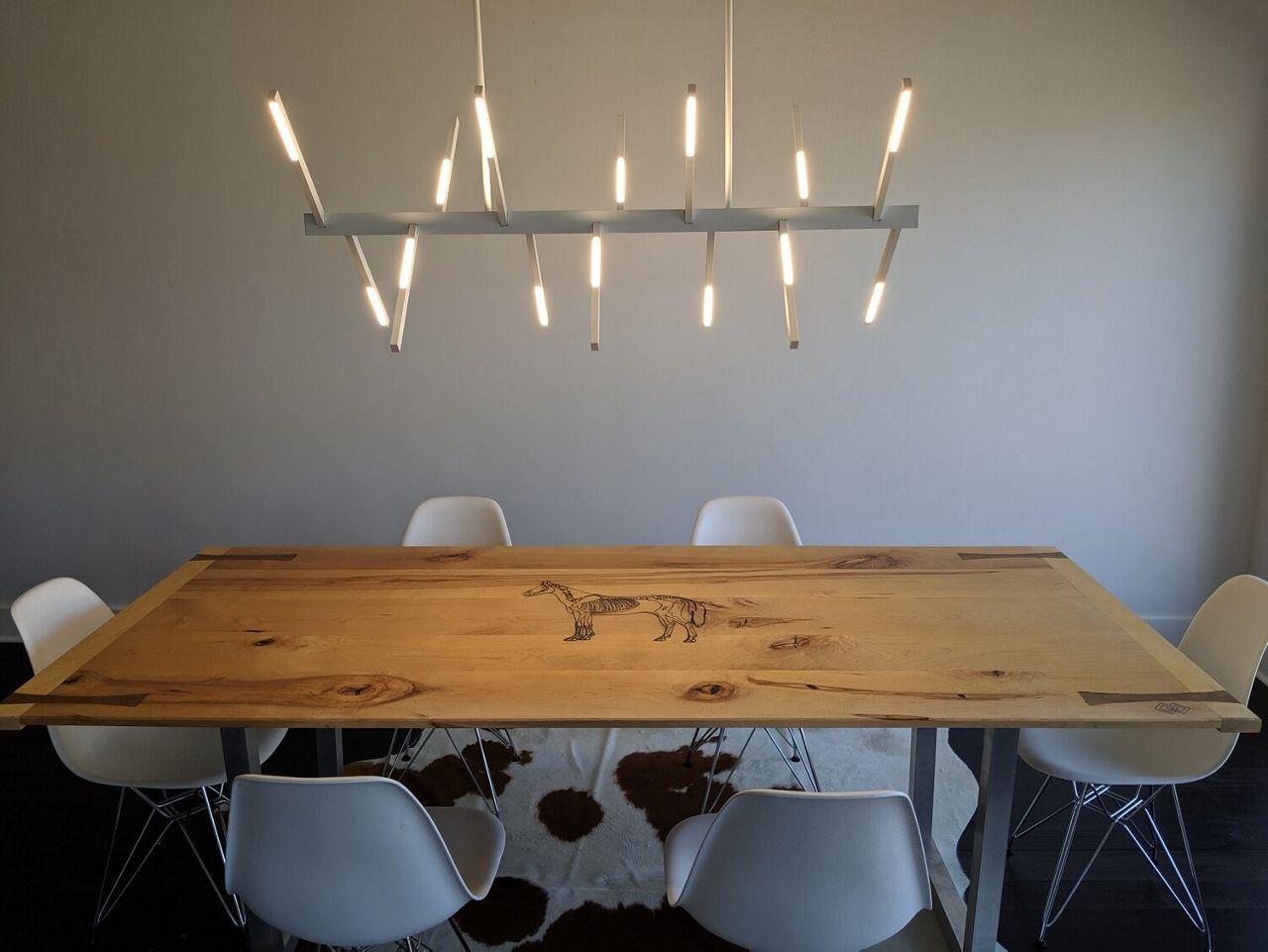
Ney has made quite a name for himself in the five years since becoming a professional woodworker. With every piece commissioned and unique, he has sold tables to multiple distilleries and other businesses around the commonwealth and the country. He also can claim SpaceX founder and Tesla CEO Elon Musk as a customer as well as a major Hollywood studio.
“I just did about eight tables for Buffalo Trace distillery, and I'm in talks about doing conference tables for their single-barrel tasting rooms,” Ney said. “I also just completed a bunch of tables for Space Tango in Lexington; they partner with SpaceX and NASA to build the metal and aluminum boxes that actually go into space.”
Three of Ney’s tables were used in the Drew Barrymore film “The Stand In,” which was filmed partly in Lexington.
“My name is in the credits,” Ney said. “I built the tables that were in the last scene of that movie. The set director out of Los Angeles called me and asked if they could use some of my tables for the set. I had to get tables back from customers who were super-happy to give me their table to be in a movie."
Ney uses a handheld precision router called a Shaper Origin to ensure every table is made 100% to customers’ satisfaction – projects usually take around 50-60 hours to complete. He said before the COVID-19 pandemic began he was primarily making tables for commercial use but has since been commissioned for mostly private and residential spaces. He oftentimes includes or puts special touches on pieces that are outside the box. He recently completed a table for a customer that pays homage to 1990s hip-hop group Wu-Tang Clan.
“I've always got a backlog of work,” he said. “We’re not reinventing the wheel, so the easiest way to survive. When you finish a table, and you take it somewhere and you put it in their house, it's a very raw experience because you’re always amazed that you made it. I love the pieces like the Wu-Tang Clan table because it’s unique inside unique. It’s the only one I’ve ever done and I loved doing it. I hope I’ll get to do more of things like that in the future.”
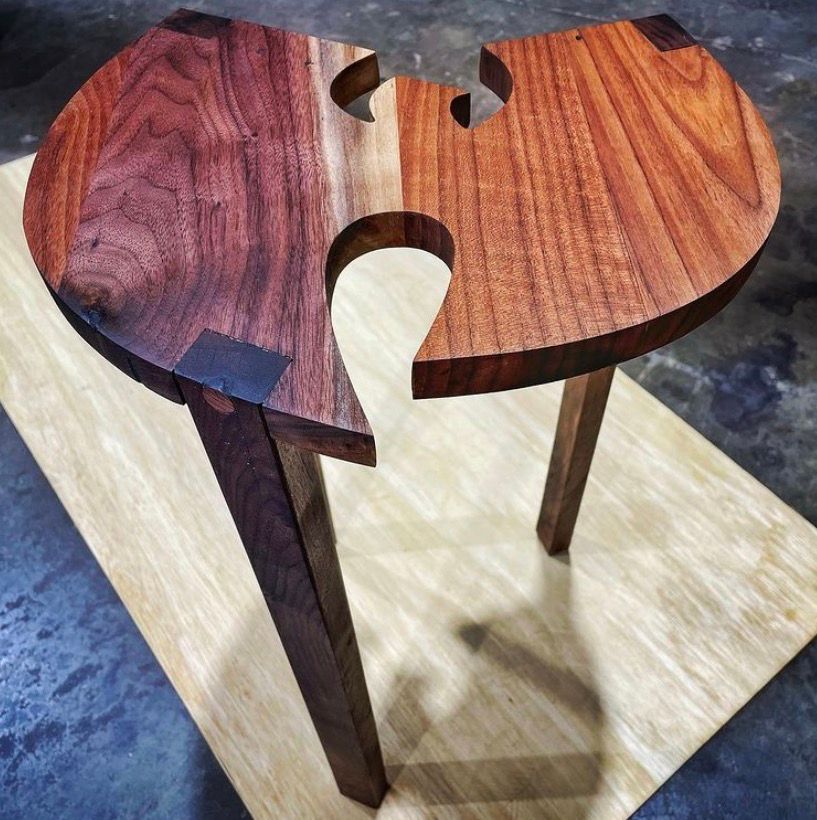
Being a woodworker in this day and age is difficult because of what Ney called the “disposable culture,” and just because Ney is a woodworker, it seems as if he is putting his philosophy degree to good use.
“A lot of people buy furniture now they don’t care to just throw away,” he said. “We should care about the stuff we own to some degree – I was as guilty of it as anybody else. But there is purpose in being connected to the things you spend your labor on and use your money to buy. It should be on something that means something.”Ney worked as a librarian in Lexington through a grant from the Knight Foundation working in outreach services teaching computer classes and trying to bridge the digital divide. He said he enjoyed that work and admitted it was not as labor-intensive as his current vocation, but he believes he made a wise choice.
“You're always working toward a perfect table but no tables are perfect. Imperfections are what make it the unique piece it is.”“I love it,” he said. “It's a bit of a hustle and you have to work a lot. But I love what I do, so it works out. I'm always working on getting better and there’s no such thing as perfect. “You're always working toward a perfect table but no tables are perfect. Imperfections are what make it the unique piece it is.”





